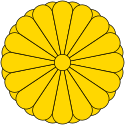| |||||||||||||||||||||||||||||||||||||||||||||||||||||||||||||||||||||||||||||||||||||||||||||||||||||||||||||||||||||||
All 511 seats in the House of Representatives 256 seats needed for a majority | |||||||||||||||||||||||||||||||||||||||||||||||||||||||||||||||||||||||||||||||||||||||||||||||||||||||||||||||||||||||
|---|---|---|---|---|---|---|---|---|---|---|---|---|---|---|---|---|---|---|---|---|---|---|---|---|---|---|---|---|---|---|---|---|---|---|---|---|---|---|---|---|---|---|---|---|---|---|---|---|---|---|---|---|---|---|---|---|---|---|---|---|---|---|---|---|---|---|---|---|---|---|---|---|---|---|---|---|---|---|---|---|---|---|---|---|---|---|---|---|---|---|---|---|---|---|---|---|---|---|---|---|---|---|---|---|---|---|---|---|---|---|---|---|---|---|---|---|---|---|---|
| Turnout | 68.01% ( | ||||||||||||||||||||||||||||||||||||||||||||||||||||||||||||||||||||||||||||||||||||||||||||||||||||||||||||||||||||||
| |||||||||||||||||||||||||||||||||||||||||||||||||||||||||||||||||||||||||||||||||||||||||||||||||||||||||||||||||||||||
 Districts shaded according to winners' vote strength | |||||||||||||||||||||||||||||||||||||||||||||||||||||||||||||||||||||||||||||||||||||||||||||||||||||||||||||||||||||||
| |||||||||||||||||||||||||||||||||||||||||||||||||||||||||||||||||||||||||||||||||||||||||||||||||||||||||||||||||||||||
| This article is part of a series on |
 |
|---|
|
|
General elections were held in Japan on 7 October 1979 to elect the 511 members of the House of Representatives. Prime Minister Ōhira Masayoshi's announcement that a consumption (sales) tax would be imposed was a hot-button issue in the run-up to the election. Facing widespread public disapproval, the prime minister abandoned the tax proposal.[1] The prime minister's party, the Liberal Democratic Party (LDP), ended up losing one seat, while the Japan Communist Party experienced a surge in voter support and its best ever electoral result, which mostly came at the expense of the Japan Socialist Party and the LDP-breakaway New Liberal Club.
This was the first election in the LDP's history in which the party increased its share of the popular vote compared to the previous election.
- ^ "The Political History of Japan's Consumption Tax". nippon.com. 2019-10-08. Retrieved 2020-03-12.






